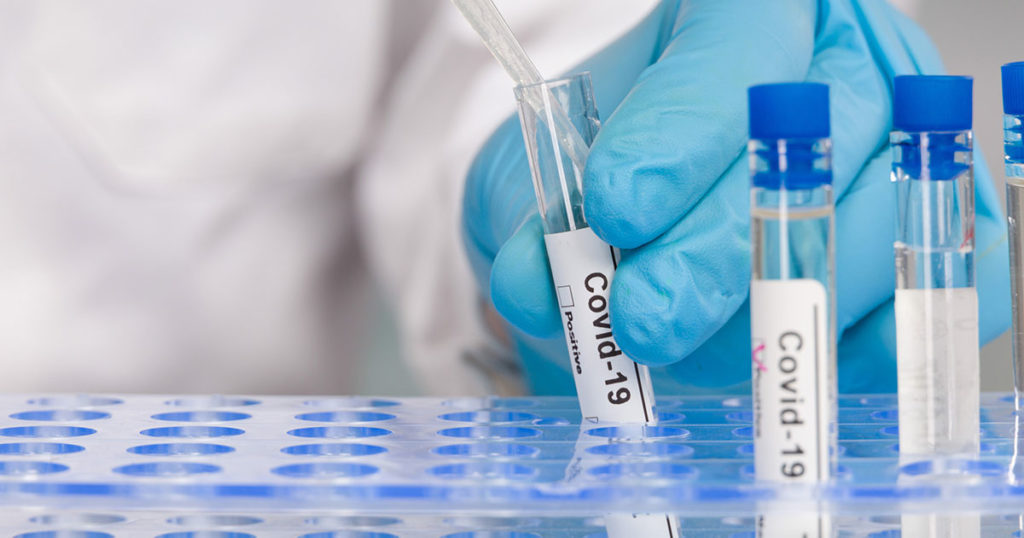Medtech Companies Are Manufacturing Critical COVID-19 Tests

Doctors, nurses and health care providers fighting on the front lines against the coronavirus are modern-day heroes. Every day they selflessly risk their own health to provide essential care to prevent, test for and treat this deadly virus.
Behind the scenes, the medical technology industry is working around-the-clock to manufacture the critical supplies providers need to combat the virus. Across the country, manufacturers are adding shifts, ramping up alternative production lines and working overtime to produce personal protective equipment (PPE), ventilators and the diagnostic tests desperately needed on the front lines.
Testing is an essential tool to stop the spread of the virus. Developing and manufacturing enough COVID-19 tests is critical to identifying which patients need treatment, which patients must be isolated, and who may have developed some level of immunity – to help guide reopening of workplaces and schools across the country. AdvaMedDx® members that develop and manufacture in vitro diagnostic tests and technologies are standard-bearers in the industry, using strict manufacturing processes and adhering to the highest quality standards to protect patients and public health.
Dozens of diagnostics manufacturers are rapidly scaling up production of over 50 commercially available COVID-19 tests after the U.S. Food and Drug Administration (FDA) granted emergency use authorizations (EUAs) – the first on March 12. More are on the way, to ensure that hospitals, physician offices, clinics and other facilities have both the point-of-care and lab tests they need to meet nearly limitless demand.
To-date, nearly 9 million COVID-19 diagnostic tests have been performed in the U.S. But our industry recognizes that more tests are needed, and we are doing everything we can to boost production. As of the end of April, medical technology companies manufactured more than 7 million diagnostic tests per week. IVD manufacturers are part of a larger testing ecosystem that also includes hospital, public health and reference laboratories – all critically needed to increase testing capacity.
Laboratories, including those in hospitals, run many of these tests on automated systems capable of processing high volumes of tests per day and providing results in as little as one to four hours. Adding to laboratory testing, the FDA recently granted emergency use authorization for three point-of-care tests, which can be conducted in hospital emergency rooms, urgent-care clinics and doctors’ offices – delivering results in under 45 minutes.
Serology tests, which detect antibodies to COVID-19, are also beginning to come on line. These tests help us understand more about the virus and how it behaves, and how many of us – including those who are asymptomatic – may have been exposed and developed some level of immunity to the disease. Confirmed immunity may serve as a key factor in determining those who can safely return to work, particularly in the field of health care. The FDA has already granted emergency use authorization for 10 serology antibody tests, with more in earlier stages of development. AdvaMedDx® has emphasized the critical importance of quality in serology testing, and ensuring tests are validated and of the highest possible standard.
Diagnostics manufacturers are also working hard to ensure continued availability of other types of tests – from hemostasis tests to blood gas tests used to help care for coronavirus patients who require ventilators to breathe, and tests for the myriad other conditions and diseases, like cancer, heart disease and diabetes. Such tests are essential to helping clinicians provide patients with the right treatment at the right time.
The medical technology industry has always been front-and-center during public health emergencies to support our health care providers and give them the tools they need to save lives. The COVID-19 pandemic is no different. Beyond diagnostics, manufacturers are also stepping up to produce the other goods, materials, and supplies necessary to fight this outbreak, from masks and gloves, to the devices that assist breathing for patients hardest hit.
Companies are adding third shifts and new production lines in order to provide what’s needed. Many are making new production investments in real time to expand capacity. Others are exploring ways to repurpose existing facilities to create new workstreams. In short, our industry has launched an all-hands-on deck response to this public health crisis, and we won’t rest until hospitals, clinics and labs have the tests and other medtech essentials they need to beat back this pandemic.
Medtech POV Podcast
Subscribe to Medtech POV with Scott Whitaker, a podcast covering the intersection of medtech and policy from every perspective.